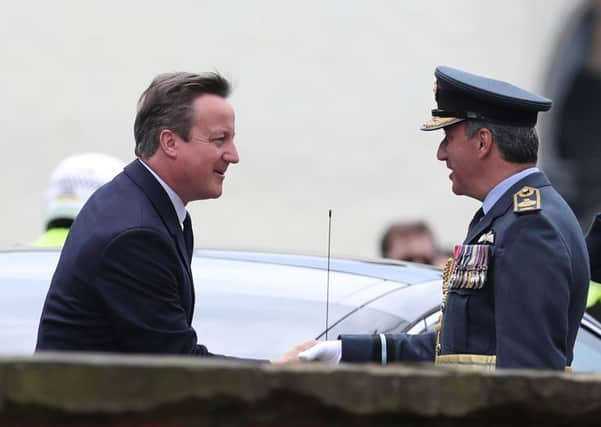Amjad Bashir: After the EU battle, we must win the peace


Like many others, my head told me to believe the evidence of the polls, despite their unreliability last year.
Instead I should have heeded my heart and all the evidence of my eyes and ears, on the ground in Yorkshire and across the country.
Advertisement
Hide AdAdvertisement
Hide AdThey told me something remarkable was happening and that British people were ready – ready to demand back control of their own borders, their own money, their own laws.
And now that the Leave camp, against the odds, has won this referendum battle, it is vital we do not go on to lose the peace. That will involve an ongoing contest for hearts and minds.
Through deeds not words, through negotiation not confrontation, we must demonstrate how Britain will not merely survive, but will thrive and prosper once free from the EU’s constraints.
Conversely Europe must now listen to Britain, not try to push her out prematurely. That would be bad for both sides. Talk of punishment for Britain is thoughtless and counter-productive. If Europe attempts to chastise Britain, it will harm itself.
Advertisement
Hide AdAdvertisement
Hide AdTrade will be the key to any settlement. For the sake of both sides it must be a deal that allows cross-border commerce to flourish and helps both the EU and the UK economies to prosper.
Neither side wants to beggar their neighbour, just to prove a point.
Britain still has powerful friends in the EU Council and they will help by urging Messrs Juncker and Schulz to calm their feelings, temper their language and be the statesmen they ought to be.
What we need now is a sensible, sensitive negotiation that canvasses all possibilities in oder to find the best outcome for both Britain and the EU.
Advertisement
Hide AdAdvertisement
Hide AdDelaying the invocation of Article 50 is a good thing for both sides. It allows time for negotiators to be chosen and briefed. It allows time for preparatory talks on an informal basis to share ground rules, explore ideas, test boundaries and lay down markers. What matters is not when the UK leaves the EU, but how we leave.
For my part I would caution only this. Like many leave-voters, my vision was for Britain to achieve a fair and controlled immigration system through leaving the EU. A deal which fundamentally hampered that ability would feel like a betrayal to many.
Closer to home, the Conservative Party has to choose a new leader before formal talks can begin in earnest. I believe it also has an even more fundamental choice too make – about what sort of party it wants to be and how it aims to reach out to the broader electorate.
It might be reasonable for Leave-supporting Tories to contend that since they prevailed, the next leader should be one of their number. Whether or not that is case, I hope the new Prime Minister will reach out to all sections of the party and the country, since our party works best in leadership when it harnesses the range of intellectual power from across its philosophical gamut.
Advertisement
Hide AdAdvertisement
Hide AdIt has been my mission to help both my party and the Leave campaign reach out to sections of the community which may not, at first appearances, be natural Tories. That is why I would wish whoever leads the Conservatives next to consider how we ensure our party is one where more people can feel at home, to think about how we engage with those difficult demographics of both class and culture.
Part of this must be a refusal to recognise any electoral no-go areas, either socio-economic or geographic.
We must rediscover community politics and be visible and active... all week, all year, right through the electoral cycle. It is not good enough just to be the people who turn up every five years, stick a blue leaflet through the door and run away before it is answered. It is not good enough to appear only to be on the side of bankers and big business.
It is up to individual Conservative associations to decide how best to do this – but it must involve being visible, rolling up our sleeves and getting stuck in with community projects in areas where people don’t find life so easy as the rest of us. We have to become helpful and relevant before people will trust us with their vote.
Advertisement
Hide AdAdvertisement
Hide AdSo more than ever in the past 70 years this is a time to strive for party and national unity. How well we achieve that will determine not only the outcome of our exit negotiations, but the future of Conservatism and country alike.
Amjad Bashir is a Conservative MEP for Yorkshire and the Humber.